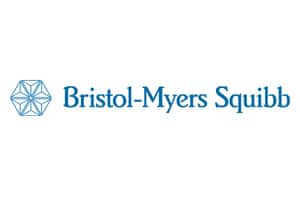
Bristol-Myers Squibb’s marathon to get approval for its immuno-oncology drug Opdivo in first-line non-small cell lung cancer (NSCLC) may finally be reaching the final straight.
The FDA has started a priority review of PD-1 inhibitor Opdivo (nivolumab) in combination with BMS’ low-dose CTLA4 inhibitor Yervoy (ipilimumab) in previously-untreated NSCLC patients whose tumours don’t have EGFR or ALK mutations, and is due to deliver a verdict by 15 May.
If approved, BMS will finally have a regimen that can challenge its main rival in the PD-1 inhibitor category – Merck & Co/MSD and its Keytruda (pembrolizumab) product – which has dominated the market for first-line immunotherapy of this type of lung cancer for years.
The FDA’s review will focus on the CheckMate-227 trial, which compared Opdivo/Yervoy to chemotherapy and could provide an alternative to Keytruda plus chemo, which is widely prescribed for newly-diagnosed NSCLC.
In the study, patients taking the Opdivo-Yervoy combination lived for a median 17.1 months compared with 14.9 months for those on chemo, reducing the risk of death by 21%.
Offering patients a chemo-free option could be “practice-changing” said lead investigator Solange Peters of the Centre Hospitalier Universitaire Vaudois while presenting the data at last year’s ESMO meeting.
It’s worth noting that Keytruda is approved for use on its own in previously-untreated PD-L1-positive NSCLC, so a chemo-free option does exist for some patients.
The trial broke a long spell at BMS punctuated by failed trials for Opdivo in this category, one of the largest in cancer immunotherapy, both on its own and in combination with other drugs.
Even in CheckMate-227, a second arm of the study comparing Opdivo plus chemo to chemo alone failed to show an advantage for BMS’ drug, while earlier trials – notably in the CheckMate-026 trial reported back in 2016 – also fell short.
The results from that trial suggested that the PD-1 inhibitor actually performed worse than chemo, while Keytruda showed a clear benefit both as a monotherapy and in combination with chemo, ushering in a period of sustained sales growth as Opdivo slowed down.
BMS’ big challenge is that immunotherapy is now a mainstay of front-line NSCLC treatment, so using chemo alone as a comparator for Opdivo/Yervoy doesn’t take into account what has become standard clinical practice for this type of cancer.
BMS’ development head for thoracic cancers – Sabine Maier – insists that there is still a need for new treatment options for NSCLC, which kills 150,000 people in the US each year “despite treatment advances”.
“Lung cancer is the third tumour type where the combination of Opdivo and Yervoy has demonstrated significant long-term overall survival benefit in a randomised phase 3 trial, which further validates the…rationale for dual immuno-oncology therapy,” she adds.




